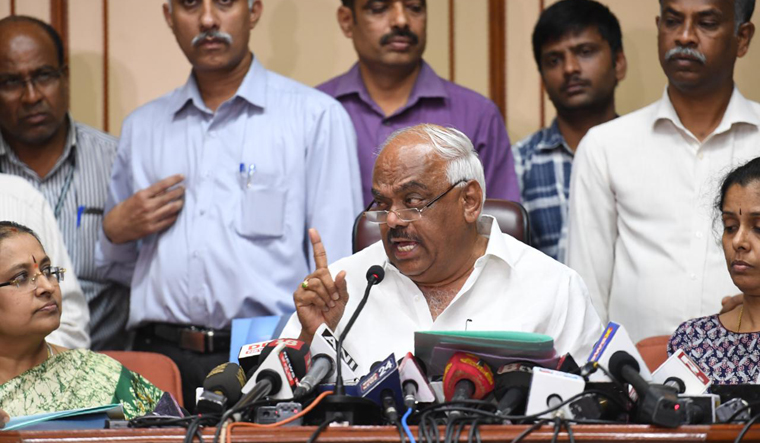The three-judge bench which decided the Karnataka MLAs disqualification case has upheld certain basic tenets regarding the conduct of business by the speaker in the house while deciding on disqualification.
The first and foremost is the basic understanding that the speaker is performing a quasi-judicial function while deciding on a question of disqualification of a member. Since it is a quasi-judicial function (and not entirely legislative), the decision can be questioned in court. The inference is also that, had it been a purely legislative function, the decision could not have been brought to the court.
Here the court has drawn from the earlier Constitution Bench judgment in the Kihoto Hollohan case, in which it was made clear that the order of the speaker can be subject to judicial review on the grounds of mala fide, perversity, violation of the constitutional mandate and order passed in violation of natural justice.
Here, the court has also suggested that in the ordinary course, the matter should be first taken to the High Court rather than rush to the Supreme Court.
When a member tenders his resignation, the speaker can examine only whether the resignation was voluntary or under coercion. Once it is demonstrated that the resignation is voluntary, the speaker is duty-bound to accept it. But the speaker cannot examine whether there were any other extraneous factors that had led to or compelled the resignation.
Though resignation of a member and disqualification of a member under anti-defection law result in the seat falling vacant, the consequences of the vacancy won't be the same.
Can a member, anticipating disqualification, tender his resignation and then contest? The court has answered this point. If an action that would have attracted disqualification had been performed by the member prior to his resignation, he would be treated as having been disqualified and removed. In other words, a member cannot resign anticipating his disqualification and claim immunity from disqualification and its consequences. “Disqualification relates back to the date when the act of defection takes place,” explains the court. “Factum and taint of disqualification does not vaporise by tendering a resignation letter to the speaker. A pending or impending disqualification action does not become infructuous by submission of the resignation letter, when act(s) of disqualification have arisen prior to the member’s resignation letter.
Before disqualifying a member, the speaker should give him sufficient opportunity to be heard; he should follow the time limit prescribed in the Rules of the Legislature.
The speaker cannot disqualify a member and prohibit him from getting re-elected to the same house. In other words, a disqualified member may contest again and enter the house; and he can even be made a minister, if he comes in re-elected.



